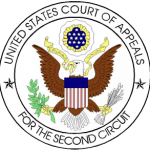 On March 4, 2015, the U.S. Court of Appeals for the Second Circuit reversed a District Court’s decision to certify a class action against Nextel Communications, Inc. (“Nextel”) in Johnson, et al v. Nextel Communications, Inc., et. al., which we previously blogged about here. In Johnson, the District Court certified a class action – pursuant to Rule 23(c)(4) – relative to the claims of 587 employees of Nextel who allege that Nextel, and the former plaintiffs’ law firm representing the employees, engaged in various illegal acts against them by entering into a Dispute Resolution Settlement Agreement (“DSRA”) to resolve their employment discrimination claims. The ruling provides yet another interesting spin on Comcast Corp. v. Behrend, 131 S. Ct. 1426 (2013).
On March 4, 2015, the U.S. Court of Appeals for the Second Circuit reversed a District Court’s decision to certify a class action against Nextel Communications, Inc. (“Nextel”) in Johnson, et al v. Nextel Communications, Inc., et. al., which we previously blogged about here. In Johnson, the District Court certified a class action – pursuant to Rule 23(c)(4) – relative to the claims of 587 employees of Nextel who allege that Nextel, and the former plaintiffs’ law firm representing the employees, engaged in various illegal acts against them by entering into a Dispute Resolution Settlement Agreement (“DSRA”) to resolve their employment discrimination claims. The ruling provides yet another interesting spin on Comcast Corp. v. Behrend, 131 S. Ct. 1426 (2013).
Background To The Case
Around 2000, a law firm representing 587 employees (current and former) entered into a DRSA with Nextel to resolve various discrimination claims. As a result of the DSRA, the law firm received $5.5 million in attorneys’ fees as well as an additional $2 million to act as consultants to Nextel on its employment practices. In total, the 587 employees received less than half of the amount that their law firm received as part of the DRSA. As a result, the employees filed two state court actions in Colorado, which resulted in a $1.2 million class-wide settlement against the law firm, with 39 employees opting out of the settlement.
Plaintiffs in Johnson – the 587 individuals whose claims against Nextel were resolved pursuant to the DRSA – sought to certify a proposed liability class against Nextel only as well as a sub-class made up of the 39 employees who-opted out of the Colorado settlements against their former law firm. The District Court granted this motion.
The Second Circuit’s Decision
The Second Circuit reversed the District Court and held that class certification was inappropriate because under Rule 23(b)(3), class-wide issues would not predominate, and individualized issues would “overwhelm” the case. The Second Circuit reasoned that Rule 23(b)(3)’s predominance requirement is more demanding than the Rule 23(a) commonality requirement, and that individual issues must be considered in deciding whether class issues outweigh issues involving individualized proof. The Second Circuit so ruled based on its reading on Comcast Corp.
Against this backdrop, the Second Circuit held that the District Court incorrectly held that New York law should apply in deciding whether the DRSA was enforceable. Rather, the Second Circuit held that the majority of the alleged wrongdoing took place outside of New York, where the individual employees resided, and “where he or she were promised representation.” As such, the Second Circuit held that “the state with the most significant relationship to plaintiffs’ claims is each individual state in which a class member resides and where he or she was promised representation.”
Once the Second Circuit established that the substantive law of each class member’s state applied, “the case for finding predominance of common issues and the superiority of trying this case as a class action diminishes to the vanishing point.” These individualized inquiries associated with looking at the substantive law of each class member’s state “…are not collateral issues that could be determined in individual hearings after common questions are resolved for the class – they go to the heart of defendants’ liability for each class members’ alleged injury” and therefore warranted the denial of class certification. The Second Circuited noted that “the specter of having to apply different substantive laws does not necessarily warrant refusing to certify a class…whereas here, the variations in state law present ‘insuperable obstacles’ to determining liability based on common proof, such variations defeat the predominance of common issues and the superiority of trying the case as a class action.”
Implications for Employers
Workplace class actions are being reshaped before our very eyes as courts across the country apply new Supreme Court precedent. The application of Comcast to class certification in a variety of contexts is still developing in the law. The decision in Johnson adds to the ever growing post-Comcast appellate court decisions on Rule 23 certification and is a must-read for employers caught in the crosshairs of high stakes, “bet the company” class action litigation, whether employment-related or otherwise.
This column previously appeared on the Seyfarth Shaw website, here.
